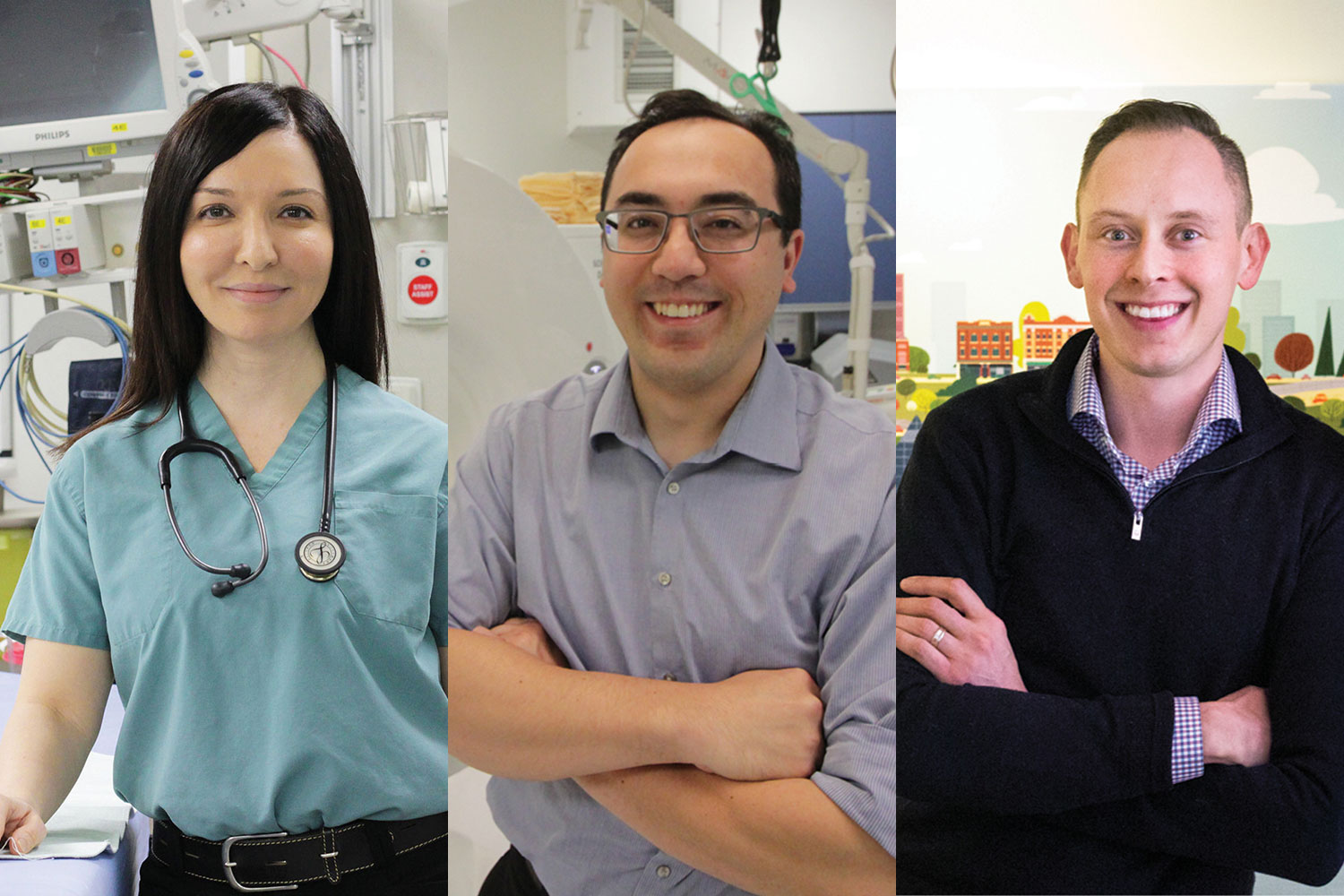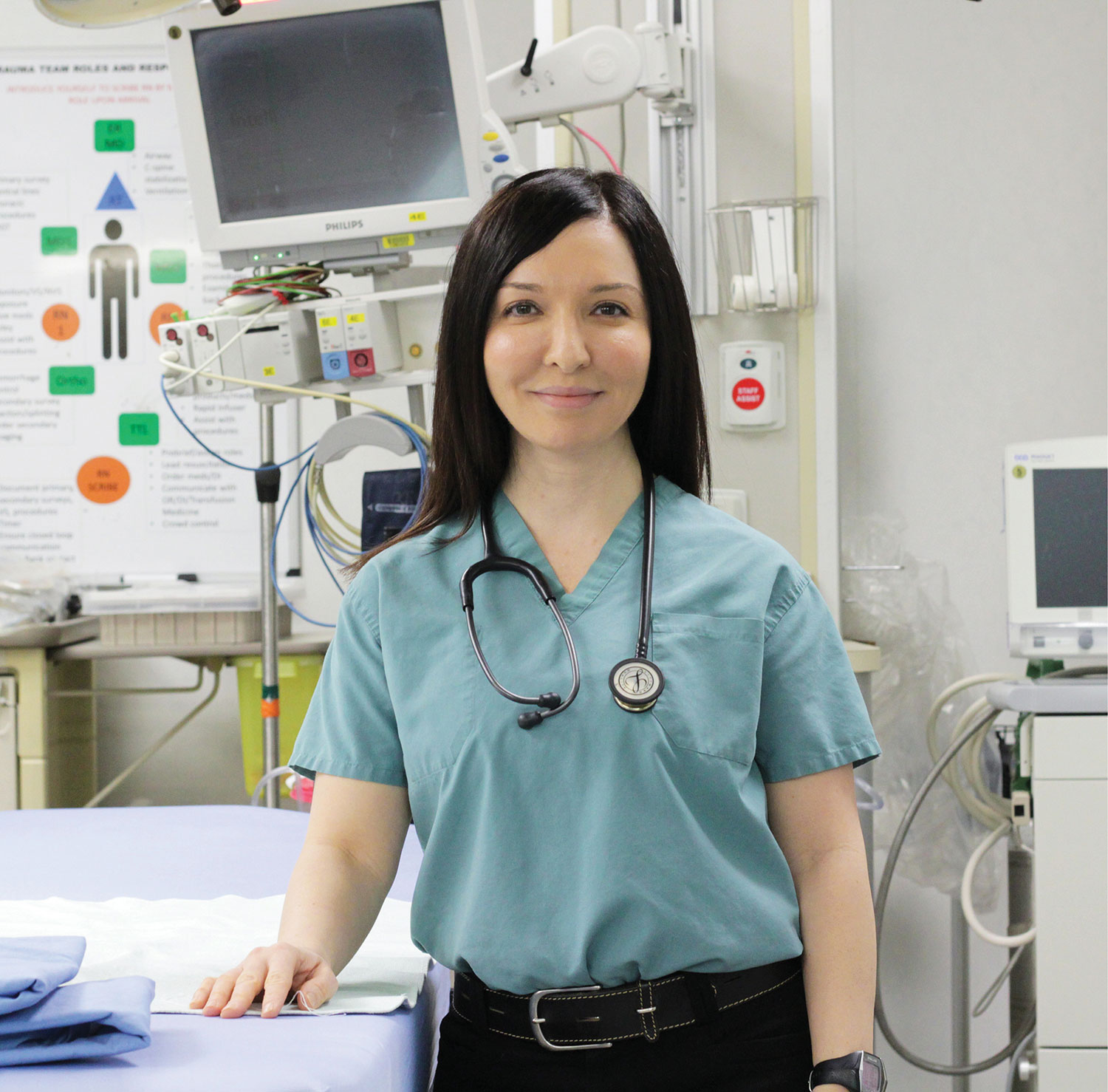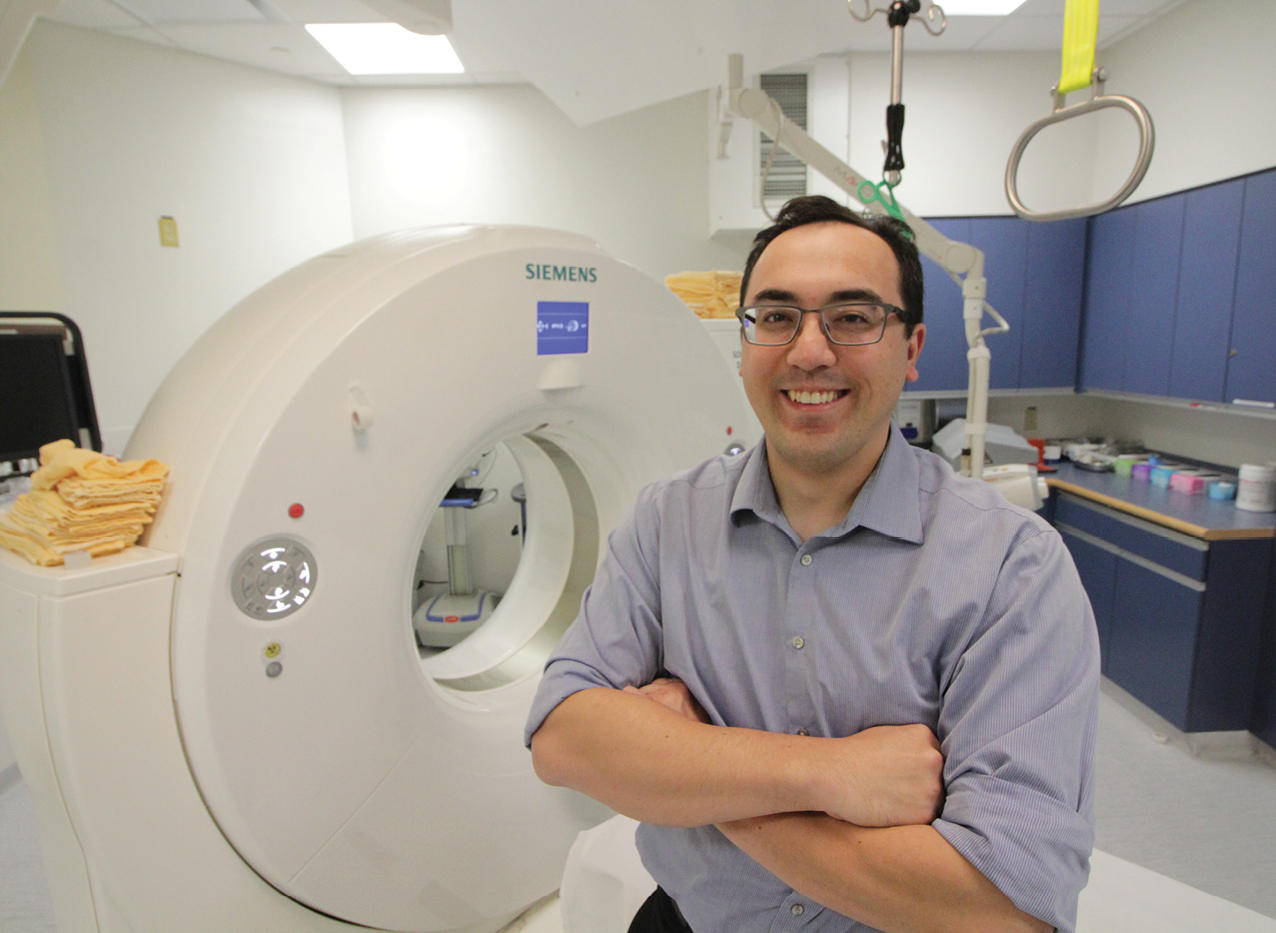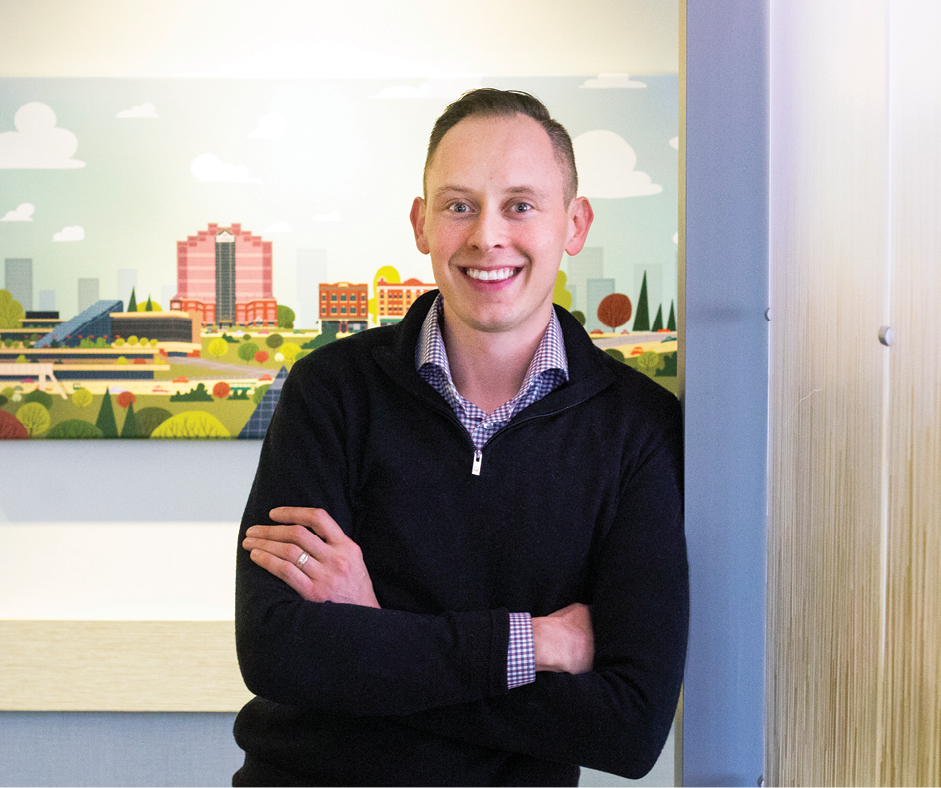
(L to R): May Mrochuk, Christopher Fung, Trevor Day
Photos: Jordan Carson
Students and residents gain valuable support and expert guidance while supervisors enjoy a deeper level of engagement with their own work and thrive in the knowledge that they have passed on both crucial skills and important life lessons along the way.Today's preceptors in the Faculty of Medicine & Dentistry believe in modelling and mentoring rather than more didactic methods.
"I focus on finding out what their individual learning needs are," says associate clinical professor and emergency physician May Mrochuk, '97 MD. "This can then inform a tailored approach that will help them take ownership over the process, instead of taking a prescriptive approach."
Christopher Fung, '10 MD, agrees. The assistant clinical professor of radiology tends to take a hands-on approach with learners just starting out, but his goal is to grant them autonomy as early as possible in their training.
"That means stepping back and 'pushing them out of the nest' and seeing how they do," he says. It's through this kind of freedom that they become who they can be and find what they love, he adds.
Learning to trust the process and allow learners to make the mistakes they need to can be hard, says Trevor Day, MD, assistant clinical professor of family medicine. "But you have to have faith in your students and let them experiment, rather than giving the information and giving them the answers," he says. Equally important to Day is cultivating in learners a tolerance for the kinds of uncertainty and ambiguity that inevitably come with practising medicine in the real world.

May Mrochuk says mentorship at the bedside is key for lifelong learning in the emergency room.
Patience is just as important as trust, says Douglas Lobb, '75 BSc, '77 DDS. "Be patient with the students and with yourself," says the dentist and clinical associate professor in the School of Dentistry. "They are learning and so are you." This patience is rewarded, he adds, when he gets to see the growth and confidence in his students and they can enjoy the feeling of working together toward a common goal.
Mrochuk agrees that the real-world exposure preceptors provide for learners is invaluable. "The experience of talking to a patient, learning how to interact with compassion, or how to manage your time in a busy emergency room can't be replaced," Mrochuk says. "A learner can pick up so much just from watching you."

"You can't have medicine without clinical teaching," says assistant professor of radiology Christopher Fung, who takes great pleasure in watching his learners gain confidence.
Supervisors like Lobb-who has been taught by masters in dental education and clinical dentistry in North America, Europe and beyond-are also excited to pass on the excellent guidance they've had. "Learning from others motivates me to pass on the knowledge that I have accumulated during my lifelong career," he says.
"Ever since I went through medical school, I made a promise to myself that I would pass along what I had learned from those who mentored me," says Mrochuk, "as a way of ensuring that the medical field would continue to evolve, and to create a positive learning environment."
For Day, it's not just about passing along the scientific knowledge needed to be a practising physician. He's also careful to model a healthy work-life balance. "I think the personality types that go into medicine tend to be very driven, perfectionist and goal oriented," he says, "and it's very easy to push and push and not to take a step back for yourself. It's important to create boundaries and to have personal time. Self-care is so important."

Modelling a healthy work-life balance is a key part of the job for assistant clinical professor of family medicine Trevor Day.
All four preceptors have come to appreciate clinical teaching as a strong complement to their own practice as well as a way to support the best future clinical practitioners.
"You can't have medicine without clinical teaching," stresses Fung. "It's a core component, it's part of being a physician, it's part of your professional responsibility, and it's actually the most fun part of my job." It's also a great way to keep your own skills fresh and up to date, he adds, a sentiment echoed by Lobb. "If you're a lifelong learner, becoming a mentor or teacher just makes sense," he says.
You're also investing in future generations, says Morchuk. "I hope that my students will take what they learn and pay it forward in the same way throughout their careers in the future."